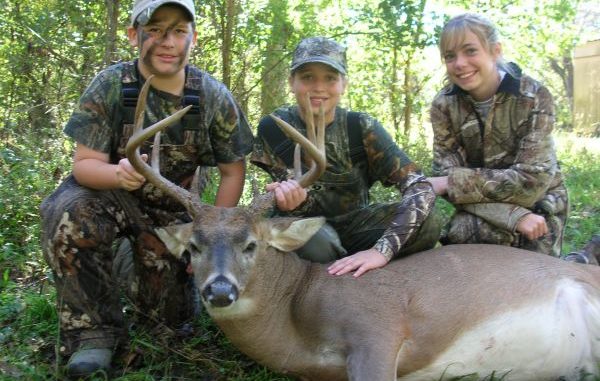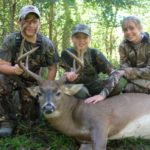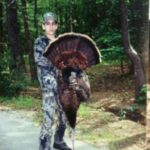
Take time to mentor a young hunter
I consider myself blessed in many ways. Among those blessings are the many great memories of childhood hunting adventures. Dad, my grandfathers and uncles made sure I got to tag along on lots of great hunts as a kid.
Christmas and December were even more exciting since it was also packed with squirrel, rabbit, deer and duck hunts. We hunted with friends and family, and with lots of kids in the mix. Some became life-long hunting companions, and very few drifted away from hunting.
We hear all the stories today about poor hunter recruitment, hunters as a group aging into decline and few young people taking up the sport. It does seem like we don’t have as many kids around the camp any more, and that is cause for concern in more ways than one.
I don’t believe we have fewer young hunters because of video games, computers and life in the suburbs. The challenges lie more in finding a place to hunt and people willing to facilitate and support young hunters.
No doubt, the price of hunting is going up. Virtually no private land is open to public hunting, particularly in the south and east where population densities are higher. Lease fees increase annually, and who among us has the kind of money it takes to purchase land for hunting? It is particularly hard on the young guys trying to raise a family and get the most from every paycheck dollar.Let’s not forget children in single-parent households who have little chance at getting into hunting.
These are the challenges to hunting that fish and wildlife agencies, and hunters need to address. I believe if we can get kids into the woods, teach them about hunting and wildlife, and share the hunting experience in a meaningful and challenging way, the kids will do the rest.
Increasing the numbers of young hunters will keep revenue for wildlife management and protection flowing through license sales and taxes on sporting goods. This is crucial to the future of wildlife. But bringing our children and grandchildren into the hunting fraternity is important in ways other than future funding: Lessons young hunters must learn in order to be good and successful hunters will also make them successful in life.
I once heard the word “ethics” defined as “doing the right thing even when no one is looking.” The perfect definition, and do you know where I heard it? It was in a Hunter Education Class. Teach a young person to hunt ethically, obeying the regulations, making clean kills and respecting wildlife, and chances are they will conduct themselves ethically in all other ways.
Safe firearms handling is all about protecting life and property, and guarding against accidents. It teaches us to handle firearms safely and to take the time to identify the target and beyond. It also teaches us that pulling the trigger is irreversible, there are consequences to every action and that handling a firearm is a grave responsibility.
Have you noticed lately how often we hear that repeat criminal offenders don’t consider the consequences before acting? Maybe they need to learn there ARE consequences to a bad decision, just like young hunters do.
How many times have you heard a hunter say, “The fun’s over when you pull the trigger?” We’re only half joking. Camp chores, caring for the dogs, dressing and processing game or whatever your type of hunting requires — it all involves work. Unless you are wealthy enough to hire the chores done, it’s half work and half play and not all fun.
I learned that lesson pretty early, and found out it applies to life, as well. We have to earn the good times with shoulder to the wheel. Hunting teaches us to mix equal parts work and fun, and the successful hunters I know are successful in life, too.
I won’t tell you that every kid I knew who grew up hunting turned out fine because it isn’t true. A few did go bad and wound up in trouble. Drugs mostly.
But I can also look back and recall that those who took the bad road were not really interested in hunting and didn’t really want to be there. Their dads and granddads tried, but it just did not take.
For the most part, however, the sons and daughters of friends and family who grew up hunting turned out to be hard-working, responsible adults. My daughter and son, Mandi and Darin, both hunted and fished growing up. Mandi lives in another state with her husband and my granddaughter Madison, who is 5. We took Madi on her first fishing trip last summer. Darin lives nearby with his wife and new baby girl, and we hunt together at every opportunity.
Both are good well-respected people, and make me very proud.
If you’re reading this, I know you already hunt and are taking your own kids or grandkids hunting. Let’s reach a little beyond that to other young people who want a hunting experience. I bet your children know other kids who express interest in hunting but for whatever reason are not able to do so. You may even have a non-hunting friend who’s a little interested. Invite him along, and if he has kids, bring them too.
Remember to keep it simple, fun and a reasonable length of time for beginners — and by all means be patient.
By the way, Merry Christmas! May you have five gallons of duck gumbo on the stove and a big venison roast in the oven on Christmas Day!




